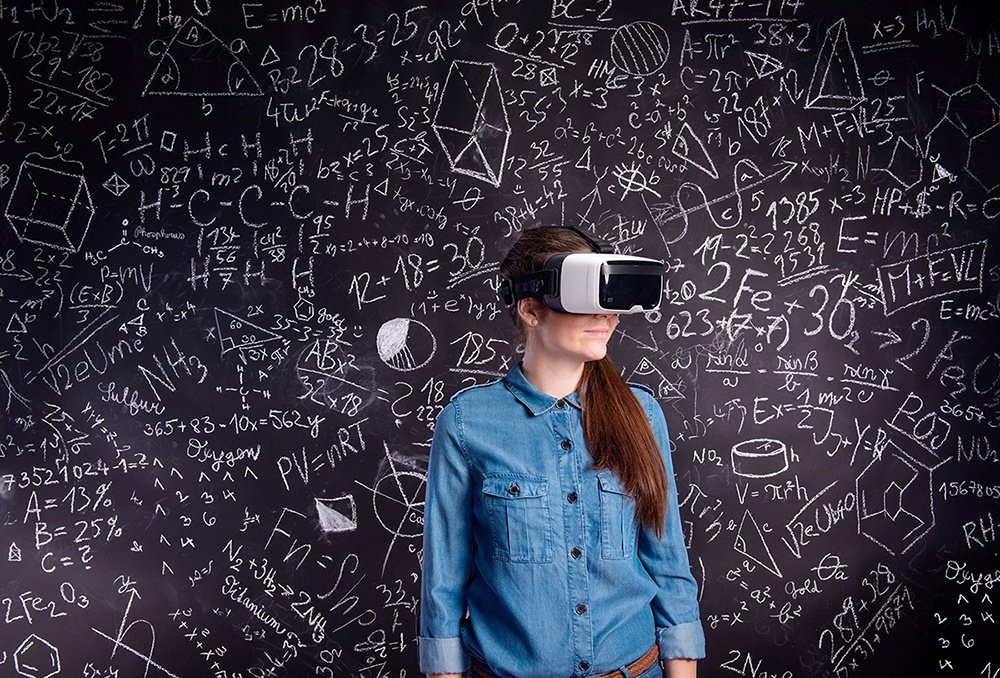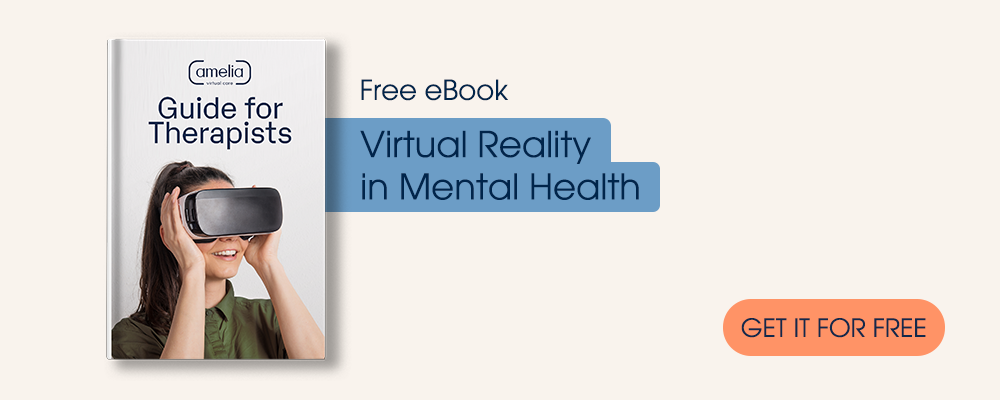A Glimpse at an End-of-degree Project Using Amelia: The Greater Implications
Just recently, University of Zaragoza student Yasamina Salas Bernal published her end-of-degree project entitled “Virtual Reality and Mindfulness: Analysis and Intervention in University Students Afraid of Speaking in Public.” This research undertaking included the use of Amelia Virtual Care technology. Although the report is in Spanish, we were able to summarize the main highlights of this insightful work in English. You will see that while this particular project does not confer any significant contribution to routine clinical practice, it does underpin the potential of virtual reality in a population segment that could stand to gain the most from such technology. If you are curious to discover more, then let’s take a look below.
The basics of the project
This end-of-degree project is interesting in that it explores the use of virtual reality technology and mindfulness within an educational framework. As the student investigator highlights, instructors are not solely tasked with imparting knowledge to students. Instructors must also provide guidance so that these same students could learn through enriching and innovative means. In other words, education curriculum necessitates an approach in which emotional education, e.g., the concept of mindfulness, and technology come together to meet prospective students’ needs. This latter point invites us to consider the following question: what form of technology is, therefore, more appropriate or suitable in such a setting?Virtual reality. In this particular case, the end-of-degree project employs Amelia Virtual Care virtual reality technology to present realistic settings, which students (especially those in university) must often face. These virtual environments include business meetings and presentations before an audience and controlled exposure elements like phone call interruptions and obnoxious coughs. School or university scenarios, such as public speaking, are frequent and can induce anxiety and stress.
Approximately 34% of the population may experience anxiety problems when speaking in public.
The project’s findings
Students who participated in this project underwent four sessions with Amelia, of which the first two included practice with mindfulness and Jacobson’s relaxation technique. These students reported a decrease in anxiety and stress levels after using Amelia Virtual Care and such stress-alleviating approaches. These results should not come of surprise, though. Mindfulness and Jacobson’s relaxation technique have been demonstrated in multiple studies to be highly advantageous to individuals, with benefits including (but not limited to):
- Allowing for fuller concentration
- Delaying the onset of aging in the brain
- Lowering levels of stress, anxiety, and depression
- Improving academic learning
- Providing a more suitable coping approach to negative feelings
- Contributing to empathy development
Similarly, those using this technology comprised individuals aged 18-27 years. These are young students who represent a generation marked considerably by advanced technology. Their familiarity with digital tools has already fostered a wider receptiveness (and eagerness) on their behalf to use virtual reality for issues like public speaking.
The greater implications
Social phobias like public speaking or work interviews affect many young students. Such fear and anxiety could extend to communication impairments and result in the loss of professional and academic opportunities. However, this end-of-degree project suggests that this negative circumstance need not occur. The synergy effect conferred by vanguard programs like Amelia Virtual Care and mindfulness could reduce social phobias and increase the likelihood of success and confidence in all contexts. What may be needed, though, is a shift in paradigm about virtual reality integration in education. How do we provide virtual reality technology on a broader scale? How do we personalize it even further to meet the nuanced differences between one student and the next? Finally, how can we encourage more receptiveness among educators, so they welcome the use of such tools in the classroom?These are insightful questions indirectly posed by this end-of-degree project. When we answer these questions, we could ensure a smoother, more effective integration of virtual reality in educational settings. This fact notwithstanding, we would find no obstacles with students. As they have grown up with technology, they are the most willing to try a novel tool that has already demonstrated efficacy in multiple settings. For the students of tomorrow require changes in education that include technology at the forefront of positive impact on mental health. If you’re curious to learn more about virtual reality and how it could benefit your sessions with young individuals, please feel free to contact us. We would love to set up a date and demo session with you!
Other articles that might interest you:
- A new clinical and experimental study: Multimedia intervention for specific phobias
- 5 things you should know about Prolonged Exposure Therapy













